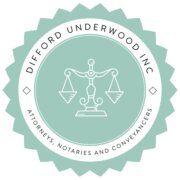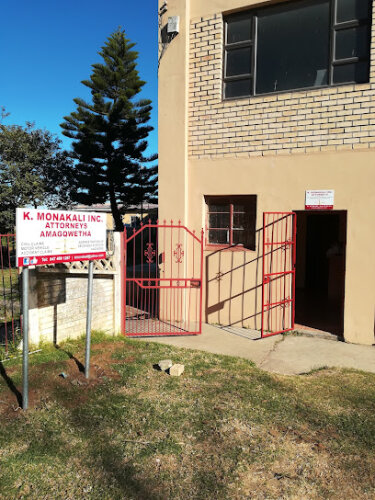Best Commercial Real Estate Lawyers in East London
Share your needs with us, get contacted by law firms.
Free. Takes 2 min.
Free Guide to Hiring a Real Estate Lawyer
List of the best lawyers in East London, South Africa
About Commercial Real Estate Law in East London, South Africa
East London, a thriving port city on the southeast coast of South Africa, serves as a gateway to business opportunities in the Eastern Cape. Commercial real estate here encompasses properties used for business activities, including office spaces, retail units, warehouses, industrial sites, and mixed-use developments. The region's commercial property market is guided by both national property legislation and specific local regulations, making it essential for investors, tenants, landlords, and developers to understand the legal landscape. Commercial real estate transactions tend to involve significant financial value and can be complex, requiring an understanding of legal, municipal, and contractual matters unique to East London and the broader South African context.
Why You May Need a Lawyer
Engaging a legal professional in commercial real estate matters is highly recommended for several reasons. Commercial property deals often involve substantive documentation, negotiations, compliance checks, and risk management. Common situations in which you may require legal assistance include:
- Drafting or reviewing commercial lease agreements - Negotiating sales and purchase contracts for business premises - Conducting due diligence on a property’s zoning, title, and usage rights - Resolving disputes between landlords and tenants - Navigating property development approvals and compliance with municipal by-laws - Handling repossessions, evictions, or cancellations of leases - Dealing with property finance and mortgage agreements - Advising on property tax implications - Transferring property ownership - Addressing issues related to servitudes, easements, and shared access
Lawyers help reduce the risk of costly legal errors and ensure your transactions comply with both national legislation and local regulations in East London.
Local Laws Overview
Several key legal frameworks govern commercial real estate in East London:
1. Deeds Registries Act and Land Titles: All commercial properties must be registered with the Deeds Office, ensuring clear proof of ownership.
2. The Alienation of Land Act: Regulates the sale of land, requiring written agreements and due registration of property transfers.
3. National Building Regulations and Building Standards Act: Enforces standards for construction, renovations, and usage of commercial buildings, overseen locally by the Buffalo City Metropolitan Municipality.
4. Municipal By-laws and Zoning Regulations: The municipality’s zoning bylaws dictate permitted use, density, parking, signage, and development guidelines for commercial properties.
5. The Sectional Titles Act: Applies if the property forms part of a sectional title scheme, governing management and owner’s rights.
6. Commercial Leases: While no specific statute governs leases, contracts are subject to general principles of South African contract law as well as the Consumer Protection Act (CPA) in some cases.
7. Environmental Legislation: Commercial developments must comply with the National Environmental Management Act, especially for environmental impact assessments, where required.
Consequently, navigating local requirements, from zoning approvals to transfer procedures, necessitates professional legal insight.
Frequently Asked Questions
What is considered commercial property in East London?
Commercial property includes any real estate used for business activities, such as offices, retail stores, warehouses, industrial sites, and mixed-use spaces. Agricultural and strictly residential properties are excluded.
What are the typical steps in a commercial property transaction?
Common steps include negotiating an offer to purchase or lease, conducting due diligence (title search, zoning, environmental checks), drafting contracts, obtaining municipal approvals if needed, and completing registration with the Deeds Office.
Do I need municipal consent for every commercial property use?
Not every use requires new consent; however, if your intended use is not aligned with the property’s zoning designation, you will need municipal approval. This can involve rezoning or consent use applications.
What are the most common issues in commercial leases?
Disputes most often arise over rent escalation clauses, maintenance responsibilities, early termination, deposit refunds, and compliance with usage clauses or zoning.
Is it necessary to sign a formal lease agreement?
While oral leases are legally valid for periods less than 10 years, a written lease is strongly recommended to protect both parties and clarify rights, obligations, and remedies.
How are commercial property taxes determined?
Municipal property rates are assessed based on the market value of the property and are payable by the registered owner. Additional taxes can be levied, depending on the property’s zoning, size, and usage.
What is due diligence in a commercial property deal?
Due diligence involves checking the property’s title deed, zoning status, building plans, compliance certificates, current tenancies, municipal rates, and any encumbrances or restrictions.
Can foreign nationals purchase commercial property in East London?
Yes, there are no major restrictions on foreign ownership of commercial property in South Africa, but certain registration and financial processes must be followed.
What happens if a tenant does not pay rent?
Landlords must follow formal legal procedures laid out in lease agreements and South African law, which may involve demanding payment, sending a breach letter, and ultimately applying for eviction through the courts if unresolved.
Who is responsible for repairs and maintenance?
This is defined by the lease agreement. Typically, structural repairs fall to the landlord, while internal and routine maintenance may be the tenant’s responsibility, but specifics should be recorded in the contract.
Additional Resources
If you're seeking more information or official guidance in commercial real estate matters in East London, consider the following:
- Buffalo City Metropolitan Municipality: Zoning, land use, building regulations, and permits. - Deeds Office (Department of Agriculture, Land Reform and Rural Development): Property registration and searches. - South African Property Owners Association (SAPOA): Advocacy and information for property owners. - Law Society of South Africa (LSSA): Locating accredited attorneys. - The Estate Agency Affairs Board (EAAB): Regulatory authority for estate agencies and agents. - Property24 and Private Property: Real estate portals that provide listings and general market information.
Next Steps
If you need legal assistance in a commercial real estate matter in East London, South Africa, here’s how you can proceed:
1. Assess Your Needs: Clarify what you require-buying, selling, leasing, developing, or resolving a dispute. 2. Gather Documentation: Prepare all relevant property documents, agreements, correspondence, and municipal records. 3. Contact a Specialist Attorney: Reach out to a conveyancing or commercial property lawyer based in East London for an initial consultation. 4. Engage Professional Advice: Seek tailored legal advice before signing any contracts or making payments. 5. Follow Legal Procedures: Ensure compliance with all legal requirements, registration processes, and municipal applications. 6. Stay Informed: Keep up to date on local bylaw changes, property market trends, and statutory requirements affecting commercial real estate.
Taking these steps will help protect your interests and ensure your commercial property matters proceed smoothly and lawfully in East London.
Lawzana helps you find the best lawyers and law firms in East London through a curated and pre-screened list of qualified legal professionals. Our platform offers rankings and detailed profiles of attorneys and law firms, allowing you to compare based on practice areas, including Commercial Real Estate, experience, and client feedback.
Each profile includes a description of the firm's areas of practice, client reviews, team members and partners, year of establishment, spoken languages, office locations, contact information, social media presence, and any published articles or resources. Most firms on our platform speak English and are experienced in both local and international legal matters.
Get a quote from top-rated law firms in East London, South Africa — quickly, securely, and without unnecessary hassle.
Disclaimer:
The information provided on this page is for general informational purposes only and does not constitute legal advice. While we strive to ensure the accuracy and relevance of the content, legal information may change over time, and interpretations of the law can vary. You should always consult with a qualified legal professional for advice specific to your situation.
We disclaim all liability for actions taken or not taken based on the content of this page. If you believe any information is incorrect or outdated, please contact us, and we will review and update it where appropriate.











